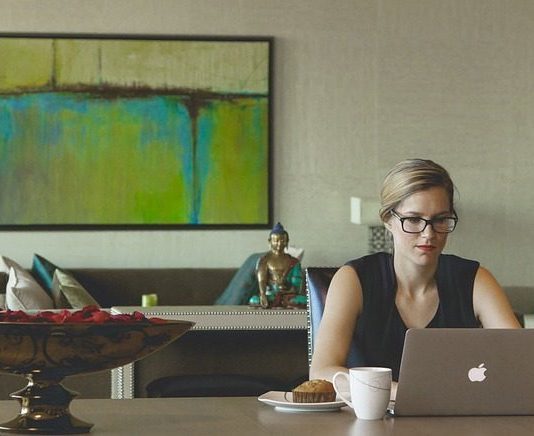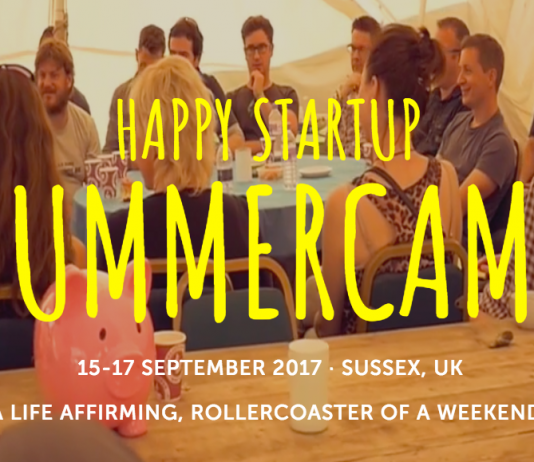Marcel van Marrewijk's Blog, page 121
July 25, 2017
3 Tips for Staying Productive if You Work Remotely

Article originally published at deemly.co
Many companies now allow team members to work from home, and startups in particular often have to search outside their country of origin to find the talent they need. If you’re an aspiring freelancer there are many ways to find work with companies all around the world.
Even if you don’t work for a company abroad you might want to consider asking your employer if you can try working remotely. Studies have found that working remotely can actually boost productivity and reduce stress:


Source: Evolving Workforce Research 2014, TNS Global
If you do live far from your employer, here are a few things to keep in mind as you join a team thousands of miles away:
Communication is Key
Whether your company favors email, video chats, or a third-party messaging service like Slack, you should take care to stay in regular contact. Voice calls can be especially effective for meetings, and you may want to set up weekly calls with relevant team members to update them on your progress, discuss new projects, and generally feel included despite working from far away.
Mind your Time Zones
Don’t miss your meetings! You may have to account for time differences between yourself and your organization’s home base. Take particular care around daylight savings because countries don’t all change their clocks on the same date, and your regular meeting time might move an hour forward or backward for a few weeks.
If you’re based in the United States consider changing your phone’s clock to the 24-hour setting. Many other countries don’t use the AM or PM system for telling time, and if you aren’t prepared you may think someone’s pulling your leg when they request a meeting time for 15:00.
Take Notes
Since you don’t work in the same space as the rest of your company, it’s always useful to take extensive notes on your calls with team members. There’s no single, correct method for note taking, but it helps if you’re a fast typer. After I finish any meeting, I spend a few minutes cleaning up my notes and making them completely readable to a future version of myself. This way, I have a record of my progress, important tasks, and spontaneous ideas that came about during the meeting.
Good luck, and happy working!
The post 3 Tips for Staying Productive if You Work Remotely appeared first on Seats2meet.
Join the Happy Startup School Summer Camp

On September 15th one of the top 10 business events in Europe starts in England. Entrepreneurs, innovators, and creatives will get together in the countryside of Sussex for a weekend. The reason? To celebrate the Happy Startup School. A community that reunites all sorts of entrepreneurs to create a more sustainable and of course, happy, business. To have a taste of it, Lenneke van Rossum, one of my colleagues at S2M International did a talk last year.
Here is her tip on the Summer camp.
“Don’t go if you do not feel like:
– meeting and connect with the most wonderful people
– receiving the best ideas for you as an entrepreneur
– having a great and inspiring time
… and especially not if you don’t want to grow as a person.”
lenneke van rossum
Another member of the S2M community that joined the last year was the owner of Fun Base, Kai Brouwer.
“Coming to summercamp felt like coming home”
kai browuer
The summercamp has several talks and interviews from the campers themselves. They come from all over the world and you can check the last year’s here and already get inspired! The idea came from the fact that although a lot of attention has been put on the new way we work, the way we gather it still the same. Lawrence, one of the initiators of the Happy Startup School, talks about it here.
If you think the summercamp is something for you, be fast! There are only 30 tickets left, and you can grab them here.
The post Join the Happy Startup School Summer Camp appeared first on Seats2meet.
July 23, 2017
Kluswerker in Niemandsland? | Politie runt drugsplatform, maar wie is aansprakelijk? | Onderzoek kleefkracht van platformen

Deze week mooi paneldiscussie gehad met Melanie Peters (Rathenau) op de voorbeschouwing van ‘TaxiBotsing‘: een docu over UberPop die na deze zomer op TV komt. Blog volgt. Maar ook een van de laatste schrijfdagen voor ‘Crowdfunding voor Dummies’ die ik samen met Koen van Vliet schrijf, een Wavemakers interview bij Hollands Kroon en een video interview met Kim Tjoa van FLOOW2 en HeelNederlandDeelt. Ook deze week weer 5 mooie stukken voorzien van duiding en commentaar. Fijne week!
Platformeconomie top 5
Wie helpt de kluswerker in het juridische niemandsland? | FD
Interessant stuk in het FD over de kluswerker via platformen. Komende woensdag zit ik om 11:00uur bij BNR met een discussie over dit onderwerp. Uit het artikel:
“Het is de olifant in de kamer van menig politicus. Hoe kunnen de vrije werkers van Uber, Deliveroo, Helpling en andere dienstverleners beter worden beschermd? Deze ‘kluswerkers’ staan niet op een loonlijst, kunnen elk moment hun inkomen verliezen en verdienen vaak zo weinig dat ze geen geld hebben voor een verzekering. Hun opdrachtgever neemt geen verantwoordelijkheid voor ze. Ze vallen kortom tussen wal en schip.”
Een paar gedachten bij dit stuk:
er mag (zoals ook Koen Frenken ook in het stuk zegt) geen verschil worden gemaakt tussen behandeling van kluswerkers die via een online platform of via de ‘traditionele’ manier hun klus doen;
op zich is deze discussie natuurlijk veel breder dan alleen de discussie over platformwerkers. Platformen zorgen er voor dat werkzaamheden tegen lage transactiekosten verdeeld, uitgezet en gecontroleerd kunnen worden (gigs). Waardoor de kluseconomie in potentie ineens enorm schaalbaar kan worden. Grootste probleem zit hem volgens mij in het feit dat de klusjeswerkers (met en zonder platform) afhankelijk zijn van een groot aantal opdrachtgevers, waardoor de onderhandelingspositie slecht is. Postbezorgers via PostNL vallen ook onder dit vraagstuk, maar kunnen gezamenlijk nog een vuist maken naar hun enige opdrachtgever. Wat dat betreft is kluseconomie via platformen misschien júist positief: er kan druk worden uitgeoefend op het platform (hoewel de workers elkaar niet of nauwelijks treffen en van elkaars bestaan afweten, wat organiseren van een actie weer lastig maakt);
er zal de komende tijd duidelijk worden dat sommige platformen geen bestaansrecht hebben: op het moment dat zij zich aan de wet houden of de wetten veranderen om de activiteiten naar een maatschappelijk gewenst niveau te tillen, zal blijken dat hun model niet houdbaar is. De vraag die een platform als Helpling dan terecht stel is: wat gebeurt er dan moet die activiteiten (waar mensen intussen nog meer gewend aan zijn). Verdwijnen die dan in zijn geheel of vindt er een verplaatsing plaats naar het zwarte circuit?
Nog genoeg uitdagingen dus. Ook interessant in het artikel:
“Lodewijk Asscher, de minister van Sociale Zaken, heeft besloten na de zomer eerst een onderzoek te laten uitvoeren naar de arbeidsrechtelijke en fiscale aspecten van deze kluseconomie. Pas daarna komen de oplossingen.”
Interessant is dat iedereen die ik heb gepolst (ook binnen de kamer) niet van dit voornemen heeft gehoord. De journaliste geeft aan dat ze dit heeft gehoord na een telefoontje met Sociale Zaken. Ik ben benieuwd. Mocht jij meer weten, dan hoor ik het graag natuurlijk.
Hotel Money Is Funding Anti-Airbnb Sting Operations – Bloomberg
Waar in Nederland, en dan voornamelijk in Amsterdam, de lokale overheid een hoop geld uit geeft voor handhaving (en voornamelijk: uitzoeken wie in overtreding is en bewijs verzamelen) rondom shortstay verhuur als Airbnb, zie je dat in de VS de hotelindustrie een handje helpt. Detectives, ingehuurd door een organisatie genaamd ‘Share Better’, welke is opgericht in een samenwerking tussen de hotel vakbond en enkele ‘industry leaders’, leveren kant-en-klare dossiers aan van illegale Airbnb aanbieders.
Super slim natuurlijk, je mag jezelf natuurlijk ook wel afvragen of dit echt gewenst is.
‘Politie runde platform, handelde niet in drugs’ – NRC
In de discussie over classificaties van platformen en de daarbij horende verantwoordelijkheden kwam deze week uit een onverwachte hoek. De politie had een dikke maand de controle van een drugs platform overgenomen. Hiermee kregen zij toegang tot een schat aan informatie. Maar nu is een belangrijke vraag: was de politie nu niet opeens een maand lang drugs aan het handelen? Oftewel: is de beheerder van en platform verantwoordelijk voor de transacties die op het platform plaatsvindt? Een discussie die we kennen van de Ubers en Airbnbs van deze wereld. De politie vindt in dit geval (logischerwijs) van niet, maar ik houd de zaak in de gaten…
SHARING BEHIND THE SCENES: UNDERSTANDING USER BYPASSING BEHAVIOR IN SHARING ECONOMY
Interessant onderzoek dat bijdraagt aan het begrijpen waarom en hoe mensen (na een eerste transactie) het platform omzeilen en direct met elkaar zaken gaan doen. Het zogenaamde “disintermediate” probleem. Enerzijds is het belangrijk en interessant voor platformen om zich hier in te verdiepen (en geloof me: dat doen ze), anderzijds is het ook interessant in de discussie rondom het businessmodel van de platformen. Als het blijkt dat jouw toegevoegde waarde grotendeels ligt in het vinden van elkaar, de eerste ID en vertrouwenscheck en een stuk gemak in communicatie, dan kun je je afvragen of een ander model niet op lange termijn interessanter is. Zoals een abonnement model (bedrag dus niet van invloed op hoe vaak je het platform gebruikt) of een model waar je bijvoorbeeld voor de eerste succesvolle transactie/match een hoge prijs betaald en voor het vervolg een lagere prijs. Dan heb je als gebruiker ook meer het gevoel waar voor je geld te krijgen.
Dit soort vraagstukken zijn overigens het meest relevant voor platform activiteiten waar de transactie lokaal is, de aard van transactie niet verschilt (schoonmaak, autohuur) en de toegevoegde waarde van het platform bij vervolgtransacties daalt (doordat je bijvoorbeeld verzekering ook makkelijk via het platform kunt regelen, dus alleen communicatie en klantenservice overblijft).
Bouwsector start experiment met spaarregeling voor zzp'ers | NU.nl
Waar de overheid nog weinig visie heeft rondom de steeds flexibeler wordende arbeidsmarkt en de uitdaging dat sociale zekerheden alleen zijn gekoppeld aan de ‘echte’ banen, zie je dat er vanuit de markt intussen steeds meer alternatieven opkomen en veel experimenten worden gestart. Zo ook in dit stuk:
“Werkgevers en werknemers in de bouwsector starten binnenkort met een proef om een eigen, alomvattende spaarregeling voor zelfstandigen (zzp’ers) op te tuigen.”
Andere mooie voorbeelden die ik de laatste tijd voorbij heb zien komen zijn Common Easy, Broodfonds, Brightpensioen en deze week kwam via Sprout ook nog SharePeople langs. Ik ben benieuwd wanneer de ‘gevestigde’ orde met een antwoord hierop komt.
Eigen publicaties
De lessen van Uber: falend leiderschap, failliete startup-cultuur of niets aan de hand? | Sprout
Wat ging er mis bij Uber? In een gastbijdrage op Sprout.nl trekken Hans van der Loo en ik de belangrijkste lessen op het gebied van falend leiderschap, een giftige bedrijfscultuur en zelfreinigend vermogen.
Groeien door los te laten: het verhaal van FLOOW2 en HeelNederlandDeelt – Deeleconomie in Nederland
Vorige week interviewde ik Kim Tjoa, oprichter van B2B asset sharing platform FLOOW2 en HeelNederlandDeelt.
Contact
Advies of duiding nodig of op zoek naar een spreker? Neem gerust contact op via mail (martijn@deeleconomieinnederland.nl) of telefoon (06-50244596)
The post Kluswerker in Niemandsland? | Politie runt drugsplatform, maar wie is aansprakelijk? | Onderzoek kleefkracht van platformen appeared first on Seats2meet.
July 21, 2017
Alicia Schalkwijk tells us about the new laws that entrepreneurs should know about

In the beginning of June, I spent three amazing days meeting incredible people at the Social Enterprise Days, in Utrecht. One of the people I met is Alicia Schalkwijk, a lawyer from Ashton Cloak, and she was there with an interest in what is new around the world. Now, I usually think lawyers are too lost in their own bubble to see what is going on around them, luckily I am very wrong! Alicia gave me a lot of insights that I had to share them with all the entrepreneurs at the Seats2meet ecosystem. She so kindly agreed to give me an interview on what entrepreneurs should be aware of new legislations and some other interesting trends on lawmaking.

Could you give a short intro about yourself?
I am Alicia Schalkwijk (31), a lawyer and founder of Ashton Cloak Legal Advice. We specialize in advising Start-ups and Grown-up companies. I have studied at Utrecht University and I myself am specialized in Intellectual Property and Health Law. I still live in Utrecht and our office is located here as well. In my spare time, I like to play tennis, meet with friends and being involved in a local political party.
A lot of innovation and disruption is happening. For you, what is the main challenge for lawmakers amidst this period of fast-paced changes?
New (digital) products and new fast-changing ways of (online) services and work environment, also ask for a different approach at legal level. Both in regards to the type of legal services and the way in which the Start-ups and Grown-ups of this time have other questions, wishes and needs.
Ashton Cloak Legal Advice goes along with these changes by providing flexible services, sustainability, and cutting-edge rates. We are experienced in these new markets. And in ‘new’ legal jurisdictions like, Privacy law, Media and Internet law, ICT law, Health law and Intellectual property law, besides our traditional legal jurisdictions as employment law and corporate law.
What are the new regulations that entrepreneurs should have their attention on when it comes to owning a company?
Two important changes are new laws concerning Privacy law and Employment law. As of May 2018, the same privacy rules apply throughout Europe. Each Member State may also choose to introduce stricter rules. Also, new laws about employment have entered into force. Complying with these new rules is essential, as explained in the next paragraphs.
It is estimated that by 2035 half of the working population will be freelancers. With that in mind, I already see a lot of changes in regulations. What do freelancers and/or people who want to become freelancers should know?
A freelancer is not regarded by law as an employee but as a contractor. Labor law is therefore not applicable, such as employment protection. And there are few legal requirements to fall back on. Therefore, it is important to let a good agreement between the freelancer and commissioning company draft by a lawyer. How to handle additional work for example. Who owns Intellectual Property rights? Who is liable in case of default? Furthermore, you do not want your relationship being considered as a ‘labour agreement’ afterwards. Which means that you could have to pay extra taxes or lose your right to self-employed rebates.
We also see tons of new technologies as blockchain. Are there already any talks about it in the legislation area? Does the same go for crypto currencies as Bitcoin and Ether?
LegalTech is on the rise. However, the Netherlands is still behind compared to, for example, the U.S. They have a legal artificially intelligent system called Ross, which can create legal documents.
After all, your business is unique. You do not provide products and/or services under the same conditions as your competitor. Therefore, you will need terms and conditions that are tailored to your business and provide the right protection.
These systems do not yet get to know your business as a real-life lawyer does, who can ask you the specific questions that will lead to custom work a computer is not yet able to do. A lawyer can explain how and when to use a contract. And can explain consequences if you should choose between options.
Also in resolving disputes LegalTech is on the rise. Until these systems will become self-learning and can create completely new contracts or statements, lawyers are still needed. If so, lawyers will get more time to explore complex issues where they can strive their creativity and expertise.
Next year the new privacy laws will start to be enforced. What does that mean for users?
The person whose personal data is processed gets stronger rights and more rights under the new privacy legislation.
For example, data like your telephone number, e-mail address and even Wi-Fi data, the information on your OV-chip card and video footage can be considered as personal data.
When a company processes your personal information, you have in principle the right for example to let your personal data be changed or deleted. The right to Data-portability is also introduced. Users are entitled to receive their personal information stored at companies, to store these themselves for personal (re)use or to pass this information to (an) other organization(s).
And what does it means for companies that work with user’s data?
To comply with the new rules, it is important that entrepreneurs and companies make timely changes.
For example, companies need to keep a record keeping insight into how personal data is processed. This task is assigned to the processor and the processing manager. The requirements for the Processor Agreement, to be concluded between the Processor and the Processing Manager, are greatly expanded. For example, there are requirements regarding the duration, type and purpose of data processing.
Further requirements are also laid down for inter alia security measures. And Privacy by Design and Privacy by Default is mandatory for companies that want to process personal data.
Do you work with particular personal data, as health data? Then there are additional requirements regarding the handling of personal data. And do not forget that an App for the smartphone, cloud services etc. also needs to fulfill all privacy requirements.
It is expected that the new rules will be strictly enforced. Penalties may be imposed up to a maximum of € 200,000 or 4% of the worldwide annual turnover.
Among others things a good Privacy Statement, Cookie Statement and Processor Agreement, made by a lawyer, will ensure that your business is well organized and high fines can be prevented.
Is there anything else you think that entrepreneurs and freelancers should know about the upcoming legislations?
Contract and conditions can these days easily be gained from the Internet or from generators. After all, your business is unique. You do not provide products and / or services under exactly the same conditions as your competitor. Therefore you should need terms and conditions that are tailored to your business so they can provide the right protection. This prevents you from being exposed to conflicts with your customer or buyer, if your terms or contracts deal with something different or less than you would have needed.
About Ashton Cloak Legal Advice
Ashton Cloak Legal advice is specialized in legal advice to Start-ups and Grown-up companies. Among other legal jurisdictions, we advise about Intellectual Property law, Health and Food law, Privacy law, Media and Internet law, ICT Law, Employment law and Corporate law.
We provide flexible services, reduced rates for Start-ups, for whom we created our Legal Custom Starters Package, we are transparent and pursuing to work on a sustainable and corporate social responsibility basis.
Our motto is therefore: ‘Our quality is in the advice, not in the marble’.
Alicia C.M. Schalkwijk, LLM
Corporate Lawyer Private Law and European Law
Member of NEVOA, Professional Association for Corporate Legal Consultants
Member of the ‘Association of Farma and Law’
The post Alicia Schalkwijk tells us about the new laws that entrepreneurs should know about appeared first on Seats2meet.
Alicia Shalkwijk tell us the new laws that entrepreneurs should know about

In the beginning of June, I spent three amazing days meeting incredible people at the Social Enterprise Days, in Utrecht. One of the people I met is Alicia Shalkwijk, a lawyer from Ashton Cloak, and she was there with an interest on what is new around the world. Now, I usually think lawyers are too lost in their own bubble to see what is going around them, luckily I am very wrong! Alicia gave me a lot of insights that I had to share them with all the entrepreneurs at the Seats2meet ecosystem. She so kindly agreed to give me an interview on what entrepreneurs should be aware of new legislations and some other interesting trends on lawmaking.

Could you give a short intro about yourself?
I am Alicia Schalkwijk (31), a lawyer and founder of Ashton Cloak Legal Advice. We specialize in advising Start-ups and Grown-up companies. I have studied at Utrecht University and I myself am specialized in Intellectual Property and Health Law. I still live in Utrecht and our office is located here as well. In my spare time, I like to play tennis, meet with friends and being involved in a local political party.
A lot of innovation and disruption is happening. For you, what is the main challenge for lawmakers amidst this period of fast-paced changes?
New (digital) products and new fast-changing ways of (online) services and work environment, also ask for a different approach at legal level. Both in regards to the type of legal services and the way in which the Start-ups and Grown-ups of this time have other questions, wishes and needs.
Ashton Cloak Legal Advice goes along with these changes by providing flexible services, sustainability, and cutting-edge rates. We are experienced in these new markets. And in ‘new’ legal jurisdictions like, Privacy law, Media and Internet law, ICT law, Health law and Intellectual property law, besides our traditional legal jurisdictions as employment law and corporate law.
What are the new regulations that entrepreneurs should have their attention on when it comes to owning a company?
Two important changes are new laws concerning Privacy law and Employment law. As of May 2018, the same privacy rules apply throughout Europe. Each Member State may also choose to introduce stricter rules. Also, new laws about employment have entered into force. Complying with these new rules is essential, as explained in the next paragraphs.
It is estimated that by 2035 half of the working population will be freelancers. With that in mind, I already see a lot of changes in regulations. What do freelancers and/or people who want to become freelancers should know?
A freelancer is not regarded by law as an employee but as a contractor. Labor law is therefore not applicable, such as employment protection. And there are few legal requirements to fall back on. Therefore, it is important to let a good agreement between the freelancer and commissioning company draft by a lawyer. How to handle additional work for example. Who owns Intellectual Property rights? Who is liable in case of default? Furthermore, you do not want your relationship being considered as a ‘labour agreement’ afterwards. Which means that you could have to pay extra taxes or lose your right to self-employed rebates.
We also see tons of new technologies as blockchain. Are there already any talks about it in the legislation area? Does the same go for crypto currencies as Bitcoin and Ether?
LegalTech is on the rise. However, the Netherlands is still behind compared to, for example, the U.S. They have a legal artificially intelligent system called Ross, which can create legal documents.
After all, your business is unique. You do not provide products and/or services under the same conditions as your competitor. Therefore, you will need terms and conditions that are tailored to your business and provide the right protection.
These systems do not yet get to know your business as a real-life lawyer does, who can ask you the specific questions that will lead to custom work a computer is not yet able to do. A lawyer can explain how and when to use a contract. And can explain consequences if you should choose between options.
Also in resolving disputes LegalTech is on the rise. Until these systems will become self-learning and can create completely new contracts or statements, lawyers are still needed. If so, lawyers will get more time to explore complex issues where they can strive their creativity and expertise.
Next year the new privacy laws will start to be enforced. What does that mean for users?
The person whose personal data is processed gets stronger rights and more rights under the new privacy legislation.
For example, data like your telephone number, e-mail address and even Wi-Fi data, the information on your OV-chip card and video footage can be considered as personal data.
When a company processes your personal information, you have in principle the right for example to let your personal data be changed or deleted. The right to Data-portability is also introduced. Users are entitled to receive their personal information stored at companies, to store these themselves for personal (re)use or to pass this information to (an) other organization(s).
And what does it means for companies that work with user’s data?
To comply with the new rules, it is important that entrepreneurs and companies make timely changes.
For example, companies need to keep a record keeping insight into how personal data is processed. This task is assigned to the processor and the processing manager. The requirements for the Processor Agreement, to be concluded between the Processor and the Processing Manager, are greatly expanded. For example, there are requirements regarding the duration, type and purpose of data processing.
Further requirements are also laid down for inter alia security measures. And Privacy by Design and Privacy by Default is mandatory for companies that want to process personal data.
Do you work with particular personal data, as health data? Then there are additional requirements regarding the handling of personal data. And do not forget that an App for the smartphone, cloud services etc. also needs to fulfill all privacy requirements.
It is expected that the new rules will be strictly enforced. Penalties may be imposed up to a maximum of € 200,000 or 4% of the worldwide annual turnover.
Among others things a good Privacy Statement, Cookie Statement and Processor Agreement, made by a lawyer, will ensure that your business is well organized and high fines can be prevented.
Is there anything else you think that entrepreneurs and freelancers should know about the upcoming legislations?
Contract and conditions can these days easily be gained from the Internet or from generators. After all, your business is unique. You do not provide products and / or services under exactly the same conditions as your competitor. Therefore you should need terms and conditions that are tailored to your business so they can provide the right protection. This prevents you from being exposed to conflicts with your customer or buyer, if your terms or contracts deal with something different or less than you would have needed.
About Ashton Cloak Legal Advice
Ashton Cloak Legal advice is specialized in legal advice to Start-ups and Grown-up companies. Among other legal jurisdictions, we advise about Intellectual Property law, Health and Food law, Privacy law, Media and Internet law, ICT Law, Employment law and Corporate law.
We provide flexible services, reduced rates for Start-ups, for whom we created our Legal Custom Starters Package, we are transparent and pursuing to work on a sustainable and corporate social responsibility basis.
Our motto is therefore: ‘Our quality is in the advice, not in the marble’.
The post Alicia Shalkwijk tell us the new laws that entrepreneurs should know about appeared first on Seats2meet.
July 19, 2017
Hoe innovatief is de platformeconomie? | Platform zit ‘klem’ | Welke verantwoordelijkheid mag je van Marktplaats verwachten?
Het is opvallend dat het aantal onderzoeken en publicaties rondom vraagstukken over arbeid en platformen de laatste maanden is geëxplodeerd. In 2012 voorspelde ik al dat in de platformeconomie de volgorde van opkomst zou zijn: geld (crowdfunding), spullen (deeleconomie) en dan pas arbeid (klusjeseconomie). Ook voorspelde ik dat deze laatste de meeste discussies zou gaan opleveren. Immers: hoe meer afhankelijk je bent van een platform, hoe groter de impact op jouw leven is. Zeker wanneer je niet eerlijk wordt behandeld. Dat was in 2013 dan ook voor mij de aanleiding om met mijn Crowd Expedition te starten met de hoofdvraag: hoe kunnen we van de (collaborative) platform economie een eerlijk model maken waar alle stakeholders de juiste waarde uit halen, zodat het maximale potentieel wordt bereikt. Met 400 interviews in 13 landen begint dat beeld steeds duidelijker te worden. Binnenkort start ik met een crowdfunding campagne voor het boek over deze expeditie. Daarover later meer.
Vanuit een zonnig Italië (regent het nog steeds bij jullie?) selecteerde ik weer 5 interessante publicaties en voorzag ik ze van mijn duiding en mening. Veel leesplezier!
Platformeconomie top 5
Platform zit ’klem’ | De Telegraaf
In dit artikel pleit Floyd Sijmons, de baas van schoonmaak platform Helpling in Nederland, voor nieuwe regels voor mensen die arbeid verrichten via online platforms.
Hij zegt in dit stuk: “naast het arbeidscontract en zzpschap moet er een een tussenvorm komen voor mensen die via een platform werken”. In eerdere nieuwbrieven sprak ik al over een nieuwe vorm tussen ‘contractor’ en ‘independent contractor’, de ‘dependent contractor’. Intermediairs, en dus ook platformen, worden veelal beschuldigd zich niet om hun ‘workers’ te bekommeren, maar juridisch gezien kunnen ze ook niet zoveel doen. Immers: op het moment dat zij extra diensten aanbieden als pensioen, verzekering, etc. vallen zij in de categorie werkgever. En dat is een categorie waar nagenoeg nul platformen in kunnen bestaan. (wat in sommige gevallen overigens ook iets over het platform zegt).
Ik denk niet dat er een aparte ‘online workers’ categorie moet komen, maar dat het stelsel van arbeid wel flink op de schop moet. Want hoe hard de vakbonden en verschillende partijen ook de voorkeur voor ‘echte banen’ uitspreken, de realiteit is dat we naar een steeds flexibeler wordende arbeidsmarkt toe gaan. Wat veel kansen biedt, maar wanneer je kijkt naar zekerheden en verantwoordelijkheden er echt nog iets moet gebeuren. Anders is de rekening voor de maatschappij. En wat dat betreft heet Floyd een aantal goede punten in zijn betoog.
The gig economy is not an innovation | Guardian
Goed stuk met interessante food4thought over innovatie en de klusjeseconomie (arbeid via platformen).
“If we are to have a conversation about how society must adapt to the inexorable “rise of the gig economy”, we will also have to ask what exactly has been invented and what is simply a conscious choice by investors and entrepreneurs to dodge laws that exist to protect workers.”
Veel platformen worden als innovatieve disruptors omschreven. En ja, er zitten een aantal innovatieve kenmerken in het model, maar dat zit in veel gevallen in het management (via algoritmes) wat ten gunste komt voor de eigenaren en investeerders, maar niet zozeer voor de gebruikers. Het voordeel wordt in veel gevallen niet (deels) teruggegeven aan de gebruikers. En helemaal niet aan de aanbieders. Zo ging ik afgelopen week met de taxi naar Schiphol en wist de chauffeur mij te vertellen dat de taxi centrale een commissie van 25% vangt, net zoveel als Uber. Het verlagen van transactiekosten middels technologie komt dus uiteindelijk niet bij de gebruikers (in dit geval de aanbieders) terecht. De ‘enige’ winst is waarschijnlijk een hogere bezettingsgraad, wat ook een flinke opbrengst voor het platform betekent. Al met al genoeg aanleiding om na te denken over alternatieve modellen.
Politie arresteert zes Marktplaats-oplichters | NU – Het laatste nieuws het eerst op NU.nl
“De Nederlandse politie heeft woensdagochtend in Oost-Brabant zes mannen gearresteerd op verdenking van het oplichten van een groot aantal slachtoffers via Marktplaats.”
Goed dat er achter de schermen wordt gewerkt om dit soort misstanden te voorkomen. Ook ik ben een keer door een oplichter met de dood bedreigd toen ik hem doorhad. Hoe interessanter de reward, hoe meer moeite mensen doen om misbruikt te maken van online marktplaatsen.
Wat mij in dit stuk opviel was dat onder de afsluitende paragraaf ‘verantwoordelijkheid’ deze passage voorbij kwam: “De politie wijst daarnaast op de verantwoordelijkheid van klanten van webwinkels en online handelsplaatsen”.
Wat ik in deze passage mis is de verantwoordelijkheid van het platform (in dit geval Marktplaats.nl) om dit soort praktijken terug te dringen. En al wordt er achter de schermen vast een hoop gedaan (ook dit soort dingen kun je deels automatiseren), verbaas ik mij al jaren dat de reputatieprofielen op deze website zo minimaal zijn. Het enige dat je ziet zijn de gebruikersnaam en het aantal jaren dat het account actief is. Nu kan ik vandaag via een slim scriptje 500 Gmail adressen openen en daarmee 500 Marktplaats accounts, dan heb ik over 5 jaar 500 accounts met 5 jaar Marktplaats ‘ervaring’. Een uitgebreider reputatie profiel is een hogere drempel voor mensen om deel te nemen aan het platform, maar ik geloof er in dat wanneer je hier meer tijd en energie in steekt je veel narigheid kunt voorkomen. Dus: wederzijdse beoordelingen, evt. link met Facebook account (niet ideaal, maar gezien het huidige aanbod even niet anders) en meer.
Why Ride-Hailing App Juno's Acquisition Points to a Need for Platform Co-ops – Shareable
Het New Yorkse ‘ride hailing’ platform Juno leek even anders dan de andere ‘kapitalistische’ concurrenten als Uber en Lyft. Juno’s belofte was dat dit een platform dat (voor minimaal de helft) in handen zou zijn van diegenen die waarde in het platform stopten: de chauffeurs. Helaas liep het anders af en werd Juno enkele maanden geleden voor 200 miljoen dollar overgenomen door concurrent Gett.
In dit stuk wordt ingegaan (en staan een aantal goede links) op de vraag hoe het ook anders had kunnen gaan. Oftewel: wat zijn de ingrediënten van ‘worker owned’ platforms waar de workers niet alleen het eigenaarschap, maar ook een stuk zeggenschap hebben.
Right to Challenge: lessen uit Nederland – Artikel – De Wakkere Burger
Goede en leuke ervaringen van ‘right to challenge’ programma’s van Nederlandse gemeenten waarmee zij de burgers de mogelijkheid geeft om bepaalde overheidstaken uit te voeren.
Events
15 juni: Het grootste kennisfestival van Nederland
Aanstaande donderdag sta ik met Wavemakers collega’s Hans van der Loo en Patrick Davidson op het Grootste Kennisfestival van Nederland. In een ‘De Parade’ sfeer en setting verzorgen wij een waanzinnig Wavemakers podium met sessies met o.a. Mark Vletter van Voys en Hans Meyer van ZOKU.
Direct na het kennisfestival vlieg ik door naar Lund in Zweden. Hier verzorg ik komende vrijdag de afsluitende keynote en debat op de ‘4th international workshop on the sharing economy’. In de alweer vierde editie van dit event komen tientallen wetenschappers uit heel Europa bijeen om hun onderzoeken over de deeleconomie te presenteren en bespreken.
In de media
New Commons: [verslag] Workshop deeleconomie II: Universiteit Gent, 31 mei 2017
Vorige week gaf ik een college aan de Universiteit van Gent tijdens een deeleconomie workshop. In deze blogpost van Rogier de Langhe vind je een samenvatting van de dag en links naar de slides.
Eigen publicaties
Leadership hack Archives – Wavemakers
Voor ons boek Wavemakers, welke in oktober 2017 uit zal komen, zijn we begonnen met het publiceren van een serie ‘leadership hacks’. Via deze link kom je uit bij de eerste twee:
#1 Ga altijd naar de hoofdbron
#2 Rookie Smart: leren is belangrijker dan weten
Contact
Advies of duiding nodig of op zoek naar een spreker? Neem gerust contact op via mail (martijn@deeleconomieinnederland.nl) of telefoon (06-50244596)
The post Hoe innovatief is de platformeconomie? | Platform zit ‘klem’ | Welke verantwoordelijkheid mag je van Marktplaats verwachten? appeared first on Seats2meet.
Do you know what are APIs?

You probably heard about APIs by now. But do you know what it means? In a quick google search, you can find out it stands for Application Programming Interface. It doesn’t say much, right? As in my job I hear a lot about it I have been trying to understand what it is with not much success, until last week in the OuiShare Fest in Paris. For my delight, they hosted a whole masterclass on it.
The masterclass had started before we entered the venue. Talking to my friend and colleague, Lenneke, when she gave me her explanation of what an API is:
Apis act as the gatekeepers to a network, but to software iNstead.
The speakers of the masterclass went on to confirm her quote, but with several other examples. The main thing I have learned is that APIs aren’t complicated, what happens is that developers are the ones who use it, and me, as a non-developer, will probably never work with the API itself. That’s the reason why it was so complicated for me, because I never saw it or touched it, I only heard of it.
API 101
The first thing you need to know, I already said: if you are not a developer, you probably won’t see an API. It doesn’t mean you won’t use them. APIs mainly work as an interface for software. Picture your phone; you probably don’t really know what is going on inside it, so it responds to your touch. The secret is that you don’t need to know how it works to use it, because of its interface. You just touch something, and things happen.
The same goes for APIs. Developers don’t have to program thousand of lines to create the Facebook ‘like’ for example. They can just use its API. And that’s just small example; the truth is APIs surround you and it is already a part of the day-by-day of developers.
API, why use it?
The reason number one, from what I understood, is simply to save time from developers. As that is the most demanded profession nowadays, saving their time means gold. Another important thing to know is that as most of the people use open APIs, that is only the tip of the iceberg. Most of the existing APIs are only utilized by the companies that created them.
There are many reasons why companies open their APIs for the rest of the world. Facebook, as I already gave an example, make their ‘like’ API open, so it increases the usage of their platform, and make them more relevant. Another reason is getting data. Remember Foursquare? Even though not a lot of people use it anymore, they were able to keep themselves updated and relevant by making their API available for free. Amazon, on another hand, doesn’t make most of their APIs open, but they exchange them between areas and departments. I mean, why do the work today that someone else already did yesterday, right? Or for the Dutch ‘Het wiel opnieuw uitvinden’?
API and design
During the masterclass, one of the highlights was the importance of designs when creating an API. As APIs act as an interface, one of the key elements for its success is that people understand them. Beyond that, it is important that when a company create several APIs that they follow the same design and logic. That is a big demand right now, someone who creates a kind of style guide for those functionalities, just as marketers create for brands. As it is a quite new market, there are lots of opportunities.
A 1,9 trillion market
Does that number sound exaggerated? Could be. But that’s what Zdenec Nemek, from Good API, said. The reason? APIs right now aren’t very smart, so there are really tons of potential. One of the biggest reasons for that according to Nemek, is that there are still a lot of human interaction with APIs. The potential is making them so smart that they can automate the connection between software. That means a software can recognize its own needs, find a match and incorporate it into itself all without human interaction. That’s when the future starts to get scary, right?
I will discuss this a bit further, but before I would like to through some light in another reason why there is so much potential in this market. The reason can be resumed in three words: smart home devices. As we focus a lot on smart phones and computer software, the numbers of smart home devices are increasing rapidly, and they also need programming and APIs. That means that to truly surf this wave, is important to remember that now we are not dealing only with smart phones, but with smart fridges, TVs, lighting, alarms, thermostat, speakers, washing machines, door keys, doorbell, magic carpets, basically everything you can think of. That’s a pretty big market, right?
What is left for the humans?
During the masterclass when they were talking about the potential of APIs for automation, a recurrent doubt popped into my mind: What jobs will be left for the humans? Mehdi Medjaoui, from APIdays, had a great answer. He told me and everyone in the masterclass that it is a political decision, companies can choose to go only for the money and fire everyone, or they can create human jobs. Jobs that require empathy. One example? Elderly care is a good one. As our population gets older, why not invest on that? What other jobs can you think that requires empathy, where the human capabilities can be put to better use?
The post Do you know what are APIs? appeared first on Seats2meet.
Put your favorite work spots in the map

Do you know cool workspots? They are all the awesome spots, where you can work, that the Seats2meet network suggested us.
Yes! That means that you can also suggest your favorite places to work.
And it also means you can take a look at the favorite work spots from locals from all over the world.
And how can you do that?
Just go to now.seats2meet.com ☺️
The post Put your favorite work spots in the map appeared first on Seats2meet.
Startup experts wanted!

EIR Europe wants start-up executives with experience on scalable ventures to support entrepreneurs in Emerging European countries as Albania, Bosnia & Herzegovina, Macedonia, and Serbia. The experts can be from the founder, executive or investor side and all that is required is your support and know how for local entrepreneurs. EIR Europe will guarantee your flight, accommodation, ground logistics, and awesome workspaces.
The program focuses on the tech industry and has as their goal leveling the startup ecosystem in those countries to global standards. The participants selected will spend 20 weekly hours developing businesses with several local entrepreneurs. The initiative partners up with several local workspaces and incubators as Impact Hub Belgrade and Startup Grind Zurich, which is powered by Google for Entrepreneurs. The initiative itself it’s from Swiss Entrepreneurship Program.
If that is something for you apply at EIR Europe.
The post Startup experts wanted! appeared first on Seats2meet.
July 17, 2017
Nieuw: de ‘dependent contractor’ | Overlast Airbnb voor hotels daalt? | Brakke deelfietsen

Met 58% op de teller gaat de crowdfundingcampage voor ‘De Platformrevolutie’ de goede kant op. Nog niet meegedaan? Dan is dit een mooi moment 



